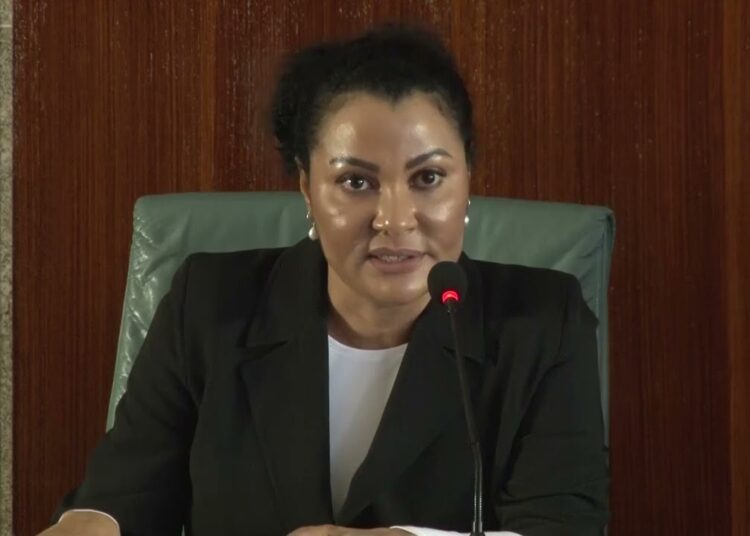The Minister of Industry, Trade and Investment, Dr. Doris Uzoka-Anite, has said the government of President Bola Tinubu has gotten commitments from foreign companies to invest close to $30 billion in Nigeria in areas ranging from steel to oil and since it took in May 2023.
The minister was speaking at a ministerial press conference at Radio House in Abuja on Friday along with the Minister of Information and National Orientation, Mohammed Idris.
Uzoka-Anite named one of India’s biggest steel company as a potential investor in Nigeria, with others Indian companies committing to invest about $14 billion inNigeria.
Uzoka-Anite also said there are investment commitments of about $1O billion in oil and gas industry, which will produce five of the 10 million jobs are ministry plans to generate.
She dispelled reports that Shell Petroleum is planning to fold up operations in Nigeria, saying even though the company is selling off assets, it is actually expanding operations in gas production.
She said, “On our bilateral engagements have been fruitful and have led to significant investment announcements and partnership opportunities for Nigerian trade.
“A notable example is the G20 summit in India, where a $14bn worth of FDI inflow to Nigeria was announced and being actualized. Since then, we have seen the Confederation of Indian Industries visiting Nigeria to further explore identified investment opportunities.”
The minister said, “These engagements with India, Germany, Netherlands, UAE, South Africa, and others have opened up avenues for investment and the establishment of joint regulatory protocols.”
She said, recently, we signed an MOU on Enhanced Trade in Partnership (ETIP) with the United Kingdom, where we have extensively discussed the issue of joint regulatory protocols.
This, she said has culminated in the signing of the Enhanced Trade and Investment Partnership Agreement.
She said, “This agreement facilitates smoother trade processes, allowing Nigerian businesses to export more goods to the UK.
“It also provides capacity building and sensitization for Nigerian exporters on how to benefit from the UK Developing Countries Trading Scheme (DCTS), which enables Nigerian exporters to export up to 3000 different agricultural products to the UK with beneficial terms.”
She said the partnership also encourages UK investors to explore Nigeria’s most promising sectors, working towards increasing reciprocal Foreign Direct Investment.
This cooperation, she said, aims to spur economic growth through investments in infrastructure, technology, and manufacturing.
Furthermore, she said, the Regulatory Cooperation on Technical Barrier to Trade (TBT) makes it easier for Nigeria to trade goods with the UK by preventing, identifying, and eliminating unnecessary technical barriers.
She said that this cooperation promotes good regulatory practices and identifies trade facilitation initiatives leading to the convergence of technical regulations, standards, and conformity assessment procedures with relevant international standards.
The minister also said that these engagements and agreements are a testament to our commitment to fostering international relations that benefit Nigerian trade and investment.
She said, “They represent a significant step towards our goal of economic diversification and sustainable growth.
“However, we must acknowledge some of the prevailing challenges. Infrastructure deficits, bureaucratic bottlenecks, and regulatory complexities remain hurdles to overcome.
“Additionally, external factors such as fluctuating commodity prices and global economic uncertainties pose risks to our economic stability. Yet, we are undeterred in our resolve to address these challenges head-on, seeking innovative solutions and fostering collaboration across sectors.”
She said, “We will also be engaging more with the private sector to get closer to the business community and resolve their challenges. We will do this by having more sectoral stakeholder engagements.
“It is through this collaboration that we can fully unlock the potential of our nation and create an environment where businesses thrive, innovate, and contribute significantly to the socio-economic development of our great nation.”











